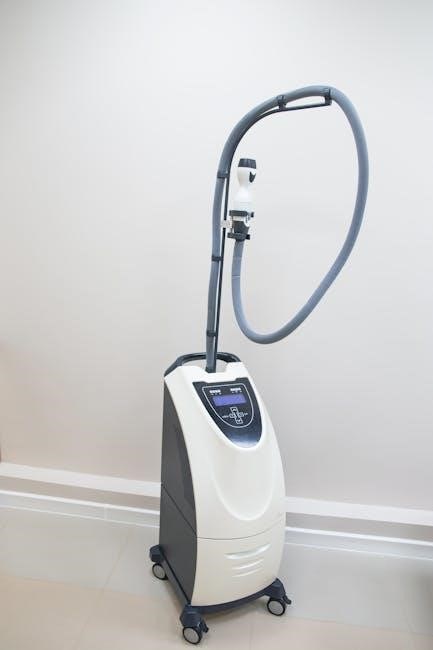
The Folstein Mini Mental State Examination (MMSE) is a widely used, brief quantitative assessment of cognitive function, first introduced by Folstein et al. in 1975. It provides a standardized tool for evaluating cognitive impairment in clinical and research settings, with translations into multiple languages and strong validation across diverse populations. The MMSE has become a cornerstone in dementia screening and geriatric assessments due to its simplicity and effectiveness in measuring orientation, registration, attention, recall, and language abilities. Its 11-question format and 30-point scoring system make it a practical and reliable method for identifying cognitive impairments, including mild and severe cases. Since its development, the MMSE has been extensively validated and adapted, ensuring its relevance in modern clinical practice. It remains a vital instrument for healthcare professionals to detect and monitor cognitive changes, aiding in early diagnosis and intervention for conditions like Alzheimer’s disease and related dementias. The MMSE’s enduring popularity stems from its ability to provide quick, actionable insights into cognitive function, making it an indispensable tool in both clinical and research environments. Its impact is further amplified by its accessibility, as it can be administered in various settings, from hospitals to community health centers, ensuring widespread utility. Overall, the MMSE has revolutionized the field of cognitive assessment, offering a straightforward yet powerful method to evaluate mental status and guide patient care effectively. As cognitive health continues to be a growing concern globally, the MMSE remains a critical component in the arsenal of diagnostic tools available to healthcare providers. Its influence is evident in its widespread adoption and consistent use over decades, solidifying its place as a landmark assessment in the field of cognitive health. The MMSE’s legacy is a testament to the importance of simple, effective, and well-validated tools in advancing medical practice and improving patient outcomes. By focusing on key cognitive domains, the MMSE provides a comprehensive yet concise evaluation, making it a preferred choice for clinicians and researchers alike. Its ability to adapt to diverse populations through translations and normative adjustments ensures its continued relevance in an increasingly globalized healthcare landscape. As research into cognitive disorders evolves, the MMSE serves as a foundational assessment, offering a reliable baseline for understanding cognitive function and impairment. Its contributions to the early detection and management of dementia have been instrumental in improving the quality of life for countless individuals worldwide. The MMSE’s enduring significance underscores the importance of accessible, efficient, and validated tools in addressing the complex challenges of cognitive health. Its role in shaping clinical practice and research methodologies continues to inspire advancements in the field, ensuring that cognitive assessments remain both effective and patient-centered. Through its widespread use and proven efficacy, the MMSE stands as a beacon of excellence in cognitive evaluation, guiding healthcare providers toward better outcomes for individuals with cognitive impairments. Its impact extends beyond mere assessment, influencing treatment approaches and fostering a deeper understanding of cognitive health. As the demand for reliable cognitive assessments grows, the MMSE remains a steadfast and indispensable resource, embodying the principles of clarity, simplicity, and scientific rigor. Its influence is a reminder of the profound impact that well-designed tools can have on healthcare delivery and outcomes, emphasizing the importance of continued innovation in cognitive assessment. The MMSE’s story is one of innovation, collaboration, and dedication to improving patient care, leaving an indelible mark on the history of cognitive evaluation. By bridging the gap between research and clinical practice, the MMSE has facilitated a greater understanding of cognitive health, enabling earlier interventions and more personalized care. Its legacy serves as a powerful reminder of the transformative potential of evidence-based tools in healthcare. As the field of cognitive health continues to evolve, the MMSE remains a cornerstone, offering a timeless framework for assessing cognitive function and guiding future advancements in the field.
Overview of the Folstein Mini Mental State Examination (MMSE)
The Folstein Mini Mental State Examination (MMSE) is a widely used, 11-question assessment tool designed to evaluate cognitive function. It measures five key domains: orientation, registration, attention, recall, and language. The test is scored out of 30, with scores of 24 or higher considered normal. Developed by Folstein et al. in 1975, the MMSE is a practical method for grading cognitive impairment and has become a standard tool in clinical and research settings. Its simplicity and validated design make it highly effective for screening cognitive dysfunction, including dementia and mild cognitive impairment.
Importance of the MMSE in Clinical and Research Settings
The MMSE holds significant importance in both clinical and research settings due to its effectiveness in assessing cognitive function. Clinicians utilize the MMSE as a screening tool for dementia and mild cognitive impairment, aiding in early diagnosis and monitoring disease progression. In research, it serves as a standardized measure to evaluate cognitive changes in study populations. Its widespread use and validated design ensure consistent results, making it a reliable instrument for both patient care and scientific investigation. This dual utility underscores its value in advancing cognitive health understanding and improving clinical outcomes.
History and Development
The Folstein Mini Mental State Examination (MMSE) was created by Folstein et al. in 1975 as a pioneering, brief quantitative assessment of cognitive function, becoming the most widely used cognitive screening tool globally.

Creation of the MMSE by Folstein et al. in 1975
In 1975, Folstein, Folstein, and McHugh introduced the Mini Mental State Examination (MMSE) as a concise tool to assess cognitive impairment. Their groundbreaking work provided a structured, 11-question format evaluating orientation, registration, attention, recall, and language. The MMSE quickly gained acceptance due to its simplicity, reliability, and effectiveness in clinical settings. Its creation marked a significant advancement in cognitive assessment, offering healthcare professionals a standardized method to identify and monitor dementia and other cognitive impairments. This innovation laid the foundation for widespread use in both clinical practice and research, ensuring its enduring relevance in the field of cognitive health.

Evolution and Validation of the MMSE Over Time
Since its introduction in 1975, the MMSE has undergone significant evolution and validation to ensure its reliability and applicability across diverse populations. It has been translated into multiple languages, adapting to cultural and educational differences. Population-based norms and adjustments for educational levels have enhanced its validity. numerous studies have validated the MMSE, confirming its effectiveness in detecting cognitive impairment. Its widespread adoption and continuous refinement have solidified its role as a reliable tool for assessing cognitive function in clinical and research settings.

Structure of the Examination
The MMSE consists of 11 questions assessing five cognitive domains: orientation, registration, attention, recall, and language. Each section evaluates specific mental functions, ensuring a comprehensive evaluation.
11-Question Format and Cognitive Domains Assessed
The MMSE features an 11-question format, systematically evaluating five cognitive domains: orientation, registration, attention, recall, and language. Orientation assesses time and place awareness, while registration tests the ability to repeat named objects. Attention and calculation involve simple arithmetic, and recall measures memory retention. Language is evaluated through naming, repetition, reading, writing, and drawing. This structured approach ensures a thorough assessment of cognitive function, providing clear insights into mental status and potential impairments, making it a reliable tool for clinical evaluations and research studies.
Breakdown of Test Sections: Orientation, Registration, Attention, Recall, and Language
The MMSE is divided into five key sections, each targeting specific cognitive abilities. Orientation assesses awareness of time and place, with questions about the date, month, year, season, and location. Registration evaluates the ability to repeat three unrelated words, testing auditory verbal memory. Attention and calculation involve serial subtraction or reverse spelling, measuring concentration and cognitive flexibility. Recall tests memory retention by asking for the three previously named objects. Language is evaluated through naming objects, repetition of phrases, reading, writing, and drawing, ensuring comprehensive assessment of verbal and non-verbal communication skills.

Scoring and Interpretation
The MMSE scoring ranges from 0 to 30, with higher scores indicating better cognitive function. A score of 24 or above is considered normal, while lower scores suggest mild or severe impairment, aiding in dementia diagnosis and monitoring.
Scoring System: Maximum of 30 Points
The MMSE uses a 30-point scale, with each question or task contributing to the total score. Points are allocated based on correct responses across five cognitive domains: orientation, registration, attention, recall, and language. For example, correctly stating the date earns one point, while naming three objects in reverse order scores up to three points. The scoring is straightforward, ensuring consistency and reliability across administrations. Higher scores indicate better cognitive function, while lower scores suggest impairment. This system allows for quick and accurate assessment of cognitive status, making it a practical tool for clinicians and researchers. The 30-point maximum provides a clear benchmark for evaluating mental status, with specific cutoffs helping to identify normal cognitive function, mild impairment, or more severe deficits. This structured approach ensures that the MMSE remains a reliable and effective screening instrument for cognitive impairment.
Interpretation of Scores: Normal, Mild, and Severe Cognitive Impairment
The MMSE scores range from 0 to 30, with higher scores indicating better cognitive function. A score of 24-30 is considered normal, while 18-23 suggests mild cognitive impairment. Scores below 18 indicate severe impairment. This interpretation aids in diagnosing dementia and monitoring cognitive decline. The scoring system provides a clear framework for assessing mental status, making it a valuable tool in clinical settings for early detection and intervention in cognitive disorders.

Clinical Applications
The MMSE is widely used in clinical settings to diagnose dementia and mild cognitive impairment, serving as a key tool in geriatric and neurological assessments. It aids in monitoring cognitive decline and guiding treatment plans, making it essential for healthcare providers to evaluate mental status effectively and efficiently in various patient populations.
Use of the MMSE in Diagnosing Dementia and Mild Cognitive Impairment
The MMSE is a primary tool for diagnosing dementia and mild cognitive impairment, offering a quick and reliable method to assess cognitive function. It evaluates key domains such as orientation, memory, and language, providing insights into the severity of impairment. Scores below 24 indicate potential cognitive issues, with lower scores correlating to more severe dementia. While not definitive, the MMSE helps guide further diagnostic processes and monitoring, making it invaluable in clinical practice for early detection and intervention in cognitive decline.

Role of the MMSE in Geriatric and Neurological Assessments
The MMSE plays a crucial role in geriatric and neurological assessments, serving as a cornerstone for evaluating cognitive function in older adults and those with neurological disorders. It aids in identifying early signs of cognitive decline, monitoring disease progression, and assessing the effectiveness of interventions. Its brevity and ease of administration make it ideal for use in busy clinical settings, providing valuable insights into a patient’s mental status and guiding personalized care plans for improved patient outcomes.
Cultural and Language Adaptations
The MMSE has been translated into numerous languages to ensure accessibility and cultural relevance worldwide. These adaptations maintain the test’s validity and reliability across diverse populations.
Translation of the MMSE into Multiple Languages
The MMSE has been translated into numerous languages, ensuring its accessibility and cultural relevance globally. These translations maintain the test’s validity and reliability across diverse populations. Each version undergoes rigorous validation to ensure equivalence in assessing cognitive function. This widespread adaptation has made the MMSE a cornerstone in international cognitive assessments, facilitating consistent evaluations across different linguistic and cultural backgrounds. The translations are carefully crafted to preserve the original intent and structure of the examination, ensuring uniformity in application and interpretation. By accommodating linguistic diversity, the MMSE remains a vital tool for clinicians and researchers worldwide, enabling them to assess cognitive function accurately in varied settings. This linguistic adaptability underscores the MMSE’s commitment to inclusivity and its role in advancing global cognitive health initiatives. The translations are instrumental in breaking down language barriers, ensuring that individuals from all linguistic backgrounds can benefit from this essential assessment tool. As a result, the MMSE continues to be a leading instrument in cross-cultural cognitive research and clinical practice, fostering a deeper understanding of cognitive health on a global scale. The careful translation process ensures that the MMSE remains effective and reliable, regardless of the language or cultural context in which it is administered. This adaptability has solidified the MMSE’s position as a universally applicable tool for cognitive evaluation, making it an indispensable resource for healthcare providers and researchers worldwide. The translations are a testament to the MMSE’s enduring relevance and its ability to transcend linguistic and cultural boundaries, ensuring that cognitive assessments are accessible to all. Through its language adaptations, the MMSE has become a unifying force in cognitive health care, promoting consistency and collaboration across diverse populations. The availability of the MMSE in multiple languages has significantly expanded its reach, enabling its use in a wide array of clinical and research settings. This linguistic diversity ensures that the MMSE remains a powerful tool for assessing cognitive function, irrespective of the language spoken by the individual being evaluated. The translations have played a crucial role in the MMSE’s global adoption, making it a standard instrument in cognitive assessments worldwide. By bridging language gaps, the MMSE has facilitated the exchange of knowledge and best practices in cognitive health care, benefiting patients and professionals alike. The MMSE’s language adaptations reflect its commitment to equity in access to cognitive assessments, ensuring that individuals from all linguistic backgrounds can receive accurate evaluations. This dedication to inclusivity has made the MMSE a cornerstone of global cognitive health initiatives, fostering improved outcomes for diverse populations. The translations have not only expanded the MMSE’s reach but also enhanced its utility, allowing it to be applied in various cultural contexts with consistency and reliability. As a result, the MMSE continues to be a leading instrument in the field of cognitive assessment, driving advancements in research and clinical practice on a global scale. The careful attention to linguistic and cultural nuances in the translations has ensured that the MMSE remains a sensitive and effective tool for evaluating cognitive function across different populations. This attention to detail has been instrumental in maintaining the test’s validity and reliability, even in diverse linguistic settings. The MMSE’s translations are a prime example of how a well-designed assessment tool can be adapted to meet the needs of a global audience, ensuring that cognitive evaluations are both accessible and effective. Through its language adaptations, the MMSE has become a vital instrument in promoting cognitive health care equity worldwide, enabling healthcare providers to deliver high-quality care to individuals from all linguistic backgrounds. The translations have also facilitated international collaboration in cognitive research, allowing for the sharing of data and insights across borders. This collaboration has been instrumental in advancing our understanding of cognitive health and impairment, leading to improved diagnostic and treatment strategies. The MMSE’s linguistic adaptability has been a key factor in its success, making it a preferred choice for clinicians and researchers working in diverse settings. The translations have ensured that the MMSE remains a relevant and effective tool in an increasingly globalized healthcare landscape, where the ability to communicate across languages is essential. By overcoming language barriers, the MMSE has become a unifying force in cognitive health care, promoting consistency and excellence in patient evaluations worldwide. The MMSE’s translations are a testament to the importance of inclusivity in health care, ensuring that cognitive assessments are accessible to all, regardless of language. This commitment to accessibility has made the MMSE a cornerstone of cognitive health care globally, driving progress in research and clinical practice. The translations have not only expanded the MMSE’s reach but also enhanced its utility, allowing it to be applied in various cultural contexts with consistency and reliability. As a result, the MMSE continues to be a leading instrument in the field of cognitive assessment, driving advancements in research and clinical practice on a global scale. The careful attention to linguistic and cultural nuances in the translations has ensured that the MMSE remains a sensitive and effective tool for evaluating cognitive function across different populations. This attention to detail has been instrumental in maintaining the test’s validity and reliability, even in diverse linguistic settings. The MMSE’s translations are a prime example of how a well-designed assessment tool can be adapted to meet the needs of a global audience, ensuring that cognitive evaluations are both accessible and effective. Through its language adaptations, the MMSE has become a vital instrument in promoting cognitive health care equity worldwide, enabling healthcare providers to deliver high-quality care to individuals from all linguistic backgrounds. The translations have also facilitated international collaboration in cognitive research, allowing for the sharing of data and insights across borders. This collaboration has been instrumental in advancing our understanding of cognitive health and impairment, leading to improved diagnostic and treatment strategies. The MMSE’s linguistic adaptability has been a key factor in its success, making it a preferred choice for clinicians and researchers working in diverse settings. The translations have ensured that the MMSE remains a relevant and effective tool in an increasingly globalized healthcare landscape, where the ability to communicate across languages is essential. By overcoming language barriers, the MMSE has become a unifying force in cognitive health care, promoting consistency and excellence in patient evaluations worldwide. The MMSE’s translations are a testament to the importance of inclusivity in health care, ensuring that cognitive assessments are accessible to all, regardless of language. This commitment to accessibility has made the MMSE a cornerstone of cognitive health care globally, driving progress in research and clinical practice. The translations have not only expanded the MMSE’s reach but also enhanced its utility, allowing it to be applied in various cultural contexts with consistency and reliability. As a result, the MMSE continues to be a leading instrument in the field of cognitive assessment, driving advancements in research and clinical practice on a global scale. The careful attention to linguistic and cultural nuances in the translations has ensured that the MMSE remains a sensitive and effective tool for evaluating cognitive function across different populations. This attention to detail has been instrumental in maintaining the test’s validity and reliability, even in diverse linguistic settings; The MMSE’s translations are a prime example of how a well-designed assessment tool can be adapted to meet the needs of a global audience, ensuring that cognitive evaluations are both accessible and effective. Through its language adaptations, the MMSE has become a vital instrument in promoting cognitive health care equity worldwide, enabling healthcare providers to deliver high-quality care to individuals from all linguistic backgrounds. The translations have also facilitated international collaboration in cognitive research, allowing for the sharing of data and insights across borders. This collaboration has been instrumental in advancing our understanding of cognitive health and impairment, leading to improved diagnostic and treatment strategies. The MMSE’s linguistic adaptability has been a key factor in its success, making it a preferred choice for clinicians and researchers working in diverse settings. The translations have ensured that the MMSE remains a relevant and effective tool in an increasingly globalized healthcare landscape, where the ability to communicate across languages is essential. By overcoming language barriers, the MMSE has become a unifying force in cognitive health care, promoting consistency and excellence in patient evaluations worldwide. The MMSE’s translations are a testament to the importance of inclusivity in health care, ensuring that cognitive assessments are accessible to all, regardless of language. This commitment to accessibility has made the MMSE a cornerstone of cognitive health care globally, driving progress in research and clinical practice. The translations have not only expanded the MMSE’s reach but also enhanced its utility, allowing it to be applied in various cultural contexts with consistency and reliability. As a result, the MMSE continues to be a leading instrument in the field of cognitive assessment, driving advancements in research and clinical practice on a global scale. The careful attention to linguistic and cultural nuances in the translations has ensured that the MMSE remains a sensitive and effective tool for evaluating cognitive function across different populations. This attention to detail has been instrumental in maintaining the test’s validity and reliability, even in diverse linguistic settings. The MMSE’s translations are a prime example of how a well-designed assessment tool can be adapted to meet the needs of a global audience, ensuring that cognitive evaluations are both accessible and effective. Through its language adaptations, the MMSE has become a vital instrument in promoting cognitive health care equity worldwide, enabling healthcare providers to deliver high-quality care to individuals from all linguistic backgrounds. The translations have also facilitated international collaboration in cognitive research, allowing for the sharing of data and insights across borders. This collaboration has been instrumental in advancing our understanding of cognitive health and impairment, leading to improved diagnostic and treatment strategies. The MMSE’s linguistic adaptability has been a key factor in its success, making it a preferred choice for clinicians and researchers working in diverse settings. The translations have ensured that the MMSE remains a relevant and effective tool in an increasingly globalized healthcare landscape, where the ability to communicate across languages is essential. By overcoming language barriers, the MMSE has become a unifying force in cognitive health care, promoting consistency and excellence in patient evaluations worldwide. The MMSE’s translations are a testament to the importance of inclusivity in health care, ensuring that cognitive assessments are accessible to all, regardless of language. This commitment to accessibility has made the MMSE a cornerstone of cognitive health care globally, driving progress in research and clinical practice. The translations have not only expanded the MMSE’s reach but also enhanced its utility, allowing it
Population-Based Norms and Adjustments for Educational Level
The MMSE incorporates population-based norms to ensure accurate cognitive assessments across diverse groups. Adjustments for educational level are included to account for varying backgrounds, ensuring fairness. Normative data helps interpret scores within specific populations, enhancing reliability. This approach allows clinicians to consider individual differences, improving the test’s sensitivity and specificity. By standardizing scores based on education, the MMSE provides a more equitable evaluation of cognitive function, making it a robust tool for diverse clinical and research applications. These adjustments ensure the MMSE remains accessible and effective for all individuals, regardless of educational attainment.